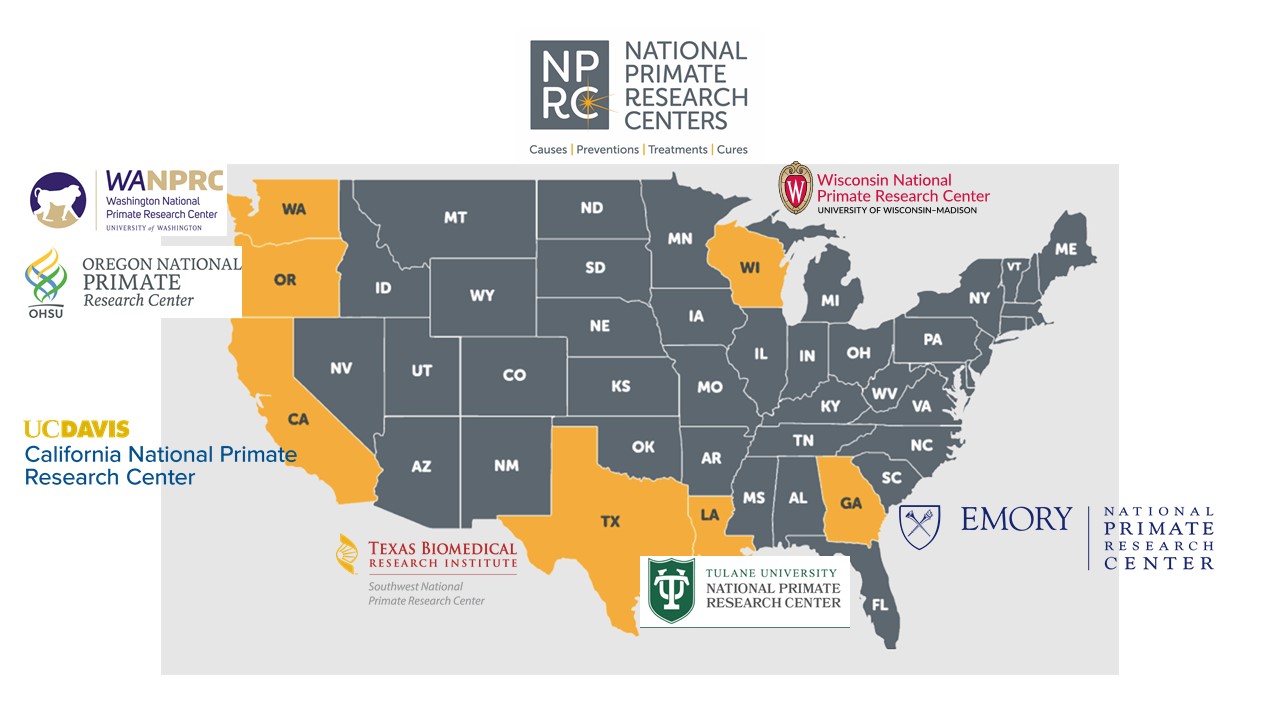National Primate Research Centers (NPRCs)

The seven National Primate Research Centers constitute a network of unique research institutions that provide important scientific resources for advancing biomedical knowledge and improving human health. Established by Congress in the early 1960s, the NPRCs have become repositories of scientific expertise, specialized facilities and equipment for research with nonhuman primates to provide preclinical data to better understand biological mechanisms of disease and to save time and money on the pathway of clinical development.
Funded by grants through the Office of the Director of the National Institutes of Health, the NPRCs develop nonhuman primate models for basic and applied studies of human health and disease. The similarity of nonhuman primates to humans in genetic makeup, behavior, and organ system function provides irreplaceable opportunities to understand, prevent, and treat human disease. Each NPRC is an integral part of its host academic institution and maintains a faculty of core scientists. The centers also serve as resources to hundreds of affiliated and visiting scientists from every part of the United States, many of whom are supported by grants from the National Institutes of Health (NIH). They also welcome investigators from around the world. Conscious of their teaching mission, they train new generations of graduate students, postdoctoral fellows, and veterinarians to meet the challenges of biomedical research in the future.
The six other primate research centers supported by the NIH are:
- California National Primate Research Center
- Emory National Primate Research Center
- Southwest National Primate Research Center
- Tulane National Primate Research Center
- Washington National Primate Research Center
- Wisconsin National Primate Research Center
The National Primate Research Centers (NPRC) Consortium has recently launched www.NPRC.org. The goal of the website is to facilitate a greater appreciation of the NPRCs, what they do, and why their scientific advancements matter to human health. The new website is a companion to the existing www.NPRCresearch.org, which is designed to help scientists access special resources to further their research. Both websites meet the mission of the Consortium of communicating the NPRC principles, capabilities, and science, in addition to emphasizing the significance of NHP research and the expert care the NPRCs provide to their animals.